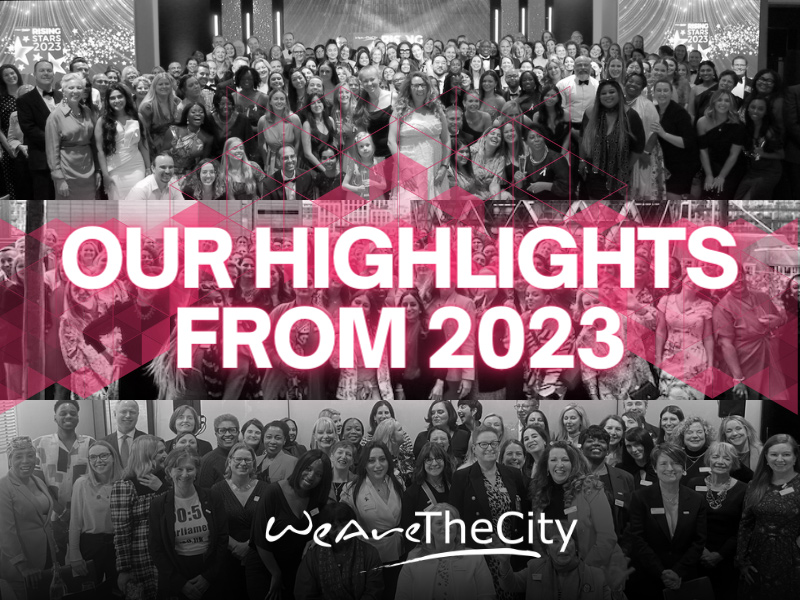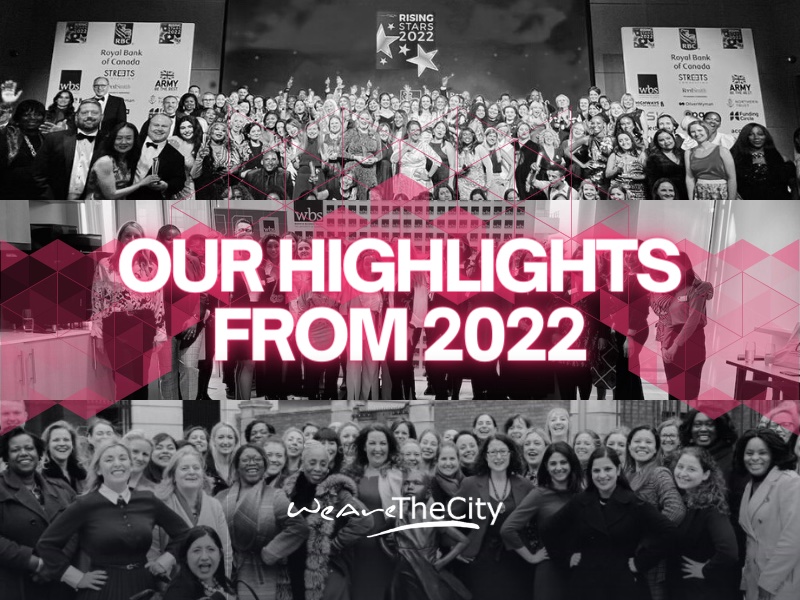Continuing on our series of looking back at the past year, we delve into some of our favourite and most important news stories of 2019.
This year has seen Sophie Walker step down from her role as leader of the Women’s Equality Party; the Financial Times announced that it was appointing its first female editor in its 135-year history; and Google’s Pedro Pina and Chair of The Scouts, Ann Limb lead the 2019 OUTstanding LGBT+ Role Models List.
We look forward to bringing you all the latest news, debates and thought-provoking articles in 2020!
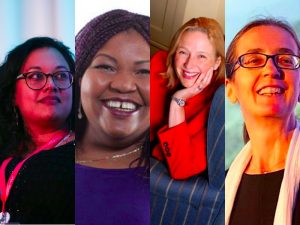 January
January
January started with a bang with over 500 women receiving awards in the 2019 New Years Honours list.
A number of prominent women are being recognised on the list, including a damehood for Jayne-Anne Gadhia, Chief Executive Officer, Virgin Money, for services to financial services and women in the financial services; a CBE for Turner Prize winner, Gillian Wearing, who was responsible for creating the statue of Millicent Fawcett; and a CBE for Dr Helen Pankhurst, senior adviser at CARE International for services to gender and equality.
Also amongst the list were a number of WeAreTheCity’s Rising Star alumni, including an MBE for Amali De Alwis, Founder of CodeFirst:Girls; and an MBE for Ruth Oshikanlu, award-winning Pregnancy Mindset Expert.
January also saw Sophie Walker step down as the leader of the Women’s Equality Party, after four years at the helm.
Walker, who was elected in 2015 as the first leader of the newly established party, said she was stepping in order to make space for new voices.
During her term, Walker ran twice for office – once during the London Mayoral and Assembly elections in 2016 and as the parliamentary candidate for Shipley in the 2017 snap general election.
In March 2018, she was re-elected as leader of the Women’s Equality Party with more than 90 per cent of the vote.
 February
February
A surge of support and celebration for women in film ahead of this year’s Oscars ceremony prompted ODEON Cinemas to produce a range of ‘Osc-her’ statues, in February this year.
Olivia Colman (The Favourite), Lady Gaga (A Star is Born) and Janet Gaynor (the first ever woman to win an Oscar) have been recreated as Osc-her statues and were unveiled at ODEON Luxe Leicester Square today.
The move comes as ODEON research* found that three in four Brits would like to see more women represented in the film awards show. Positively, this year has the most female Oscar nominees in history, however no females were nominated in the Best Director category.
Since the Oscars began in 1927, only 10.7 percent of all winners have been women** – the first being Janet Gaynor in 1929 for her role in the film Seventh Heaven.
The Best Actress category is dividing opinion amongst film fans with the nation’s sweetheart Olivia Colman (34 per cent) and film industry newcomer Lady Gaga (15 per cent) two of the top picks to win the award
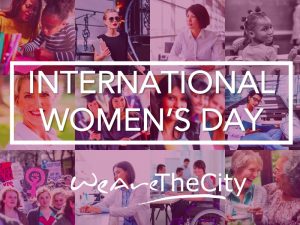 March
March
On 8th March, International Women’s Day was celebrated around the globe.
Throughout the day, we saw a number of organisations and groups marking the occasion including; the Court of Common Council, who announced that over a 100 women will receive the Freedom of the City of London to commemorate the centenary of the Representation of the People Act 1918; the Women’s Equality Party announced its interim leader and London Mayoral Candidate; and the Veuve Clicquot Business Woman Award 2019 announced its finalists.
The Alice Rose Review was also published – the review urged banks to publish its data on the funding available for female entrepreneurs as part of a new voluntary investor code.
Here at WeAreTheCity, we interviewed over 50 women from all backgrounds, ethnicity, and ages to tell us what International Women’s Day means to them.
In other news, it was reported that nearly one in ten UK employees works more than 20 hours extra a week.
The study conducted by Love Energy Savings discovered that eight per cent of British employees work a staggering 20 hours or more each week than their contracted hours.
The survey of UK workers found that over 35 per cent of employees regularly arrive at work early or stay late, and that younger people are more likely to work longer hours than their older colleagues.
 April
April
In April, The Times released its Top 50 Employers List, with Barclays, Sky, Sodexo and the Royal Navy all earning a place.
Published in partnership with Business in the Community, The Times Top 50 Employers for Women list celebrates UK employers that are building gender equality into their business strategy and have committed to creating inclusive workplace cultures and women’s progression at work.
Other companies recognised in the list include Accenture, Aviva, Simmons & Simmons, Post Office, Willmott Dixon, Marks & Spencers, and Fujitsu.
The alphabetical and unranked list is open to any company with a UK presence and evaluation includes looking at the roles of senior leaders; actions to increase representation of women in senior positions and ensure gender balance at every level; recruitment; progression; intersectionality; supporting parents and carers; and bullying and harassment.
May
New research in May suggested that nearly half of millennials struggle with imposter syndrome at work.
The research, conducted by online careers platform, Careercake, found that 49 per cent of those surveyed said their biggest worry at work was ‘not being “good enough” or being found out that you don’t have the ability to perform your role (even though you do)’.
This was the most common challenge facing millennials in the workplace followed by 36 per cent stating it was their relationship with their boss or a particular colleague, followed by 30 per cent saying it was anxiety at work.
The list also features politicians, civil servants, academics and activists, including Nimco Ali, Co-founder and Director, the Daughters of Eve; Nancy Pelosi, Speaker of the US House of Representatives; Mandu Reid, Leader of the Women’s Equality Party; Tarana Burke, Founder of the #MeToo movement; and Elizaebth Nyamayaro, Founder of the UN’s HeForShe campaign.
The list aims to recognise and celebrate the hard work around gender policy across the globe. This year, Apolitical recevied over 9,000 nominations – a record number
 June
June
It was an entrepreneurial news month in June! A new study showed that 64 per cent of women felt inspired by female entrepreneurs, but only one in four could name a successful one.
To help counteract this, Virgin StartUp launched its search for female founders looking to start, fund and scale a business. StepUp by Virgin StartUp is a two-day pre-accelerator programme for female founders looking to scale their start-up. Over the course of the two days, participants heard from a host of expert speakers and entrepreneurs who have successfully scaled their start-ups in the last few years. The programme also included a series of workshops and networking opportunities to help founders develop the skills and knowledge they need in order to take their business to the next level.
Back Her Business also gave applicants a chance to win £2,000 for their business idea. Crowdfunder teamed up with NatWest, Royal Bank of Scotland and Ulster Bank to develop and run Back Her Business — a crowdfunding programme for women across the UK. Together they’re helping women raise money for new businesses through crowdfunding, and providing free coaching, mentoring and opportunities to meet like-minded women.
Finally, the British Library partnered with Make It Your Business to support female entrepreneurs across the UK. Established by entrepreneur, writer and broadcaster Alison Cork, Make It Your Business runs a regular programme of seminars across the country, providing opportunities for women to meet established local female entrepreneurs, learn from their experiences and network with other local aspiring female entrepreneurs in a relaxed and welcoming environment.
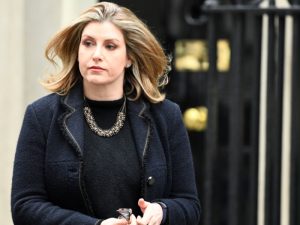 July
July
In July, Minister for Women & Equalities, Penny Mordaunt, set out plans to empower UK women, with the publication of her gender equality roadmap.
The publication, ‘Gender equality at all stages: A roadmap for change‘, set out plans to financially empower women from school to retirement.
Despite generally doing better in education, women are more than three times more likely to work part time – with less chance of seeing their wages grow, tend to work in lower paid industries and jobs, and have lower private pensions wealth.
The measures outlined include a review of enforcement of equal pay legislation and improved information for parents around family friendly entitlements.
 August
August
August saw the shocking statistic that one in eight employers would be reluctant to hire women who may have children, according to a survey conducted by Young Women’s Trust.
In the survey of 800 HR decision-makers, a significant minority (12 per cent) were unsure about hiring women who may have children in the future – despite it being illegal to make recruitment decisions on this basis. 14 per cent of male HR decision-makers and ten per cent of female decision-makers expressed this view.
Despite the scale of the problem, fewer male HR decision-makers than previously expressed reluctance to hire women who may go on to have children (14 per cent in 2019, compared with 16 per cent in 2018 and 18 per cent in 2017); during this period reluctance amongst female HR decision-makers has remained constant at around ten per cent.
 September
September
In September, it was reported that 42 per cent of women in the UK know someone who had to give up work due to lack of flexibility.
The research, conducted by Women in Business Expo, found that a lack of flexibility and issues with childcare are some of the biggest challenges women in the UK face in their careers.
The research also found that 39 per cent of British women have struggled to find a role with the right level of flexibility required.
Failures in flexibility can have a far reaching impact on the work/life balance of many women. For 67 per cent of British women having a work/life balance is more important to them than salary, but 39 per cent are still frustrated that they have had to sacrifice their salary and career progression so that they can ensure they have the right work/life balance in bringing up a family.
 October
October
October saw Google’s Pedro Pina and Chair of The Scouts, Ann Limb lead the 2019 OUTstanding LGBT+ Role Models List.
Diversity champion, INvolve, has released its annual OUTstanding LGBT+ Role Models List 2019, supported by Yahoo Finance. The lists celebrate the work being done by LGBT+ and ally leaders across the globe in both the private and public sectors, promoting LGBT+ diversity and inclusion in the workplace.
November
In November, the Financial Times announced that it was appointing its first female editor in its 135-year history.
 Roula Khalaf succeeds Lionel Barber, who has held the position since 2005 and will step down at the beginning of 2020.
Roula Khalaf succeeds Lionel Barber, who has held the position since 2005 and will step down at the beginning of 2020.
Khalaf has been the FT’s deputy editor since 2016, overseeing a range of newsroom initiatives and award winning editorial projects and leading a global network of over 100 foreign correspondents. She recently launched Trade Secrets, a new content vertical focused on global trade, and has been a driver of diversity initiatives in the newsroom, in particular those focused on increasing the FT’s female readership and talent pool.
Before taking up the deputy editor role, Khalaf was the FT’s foreign editor and oversaw the FT’s operations in Europe, Africa and the Middle East. Before that, as Middle East editor, she launched a Middle East edition and led coverage of the Arab Spring. Khalaf was named foreign commentator of the year at the Editorial Intelligence Comment Awards in 2016 and her series on Qatar won the Foreign Press Association’s Feature story of the year in 2013.


 Also in May,
Also in May, 



